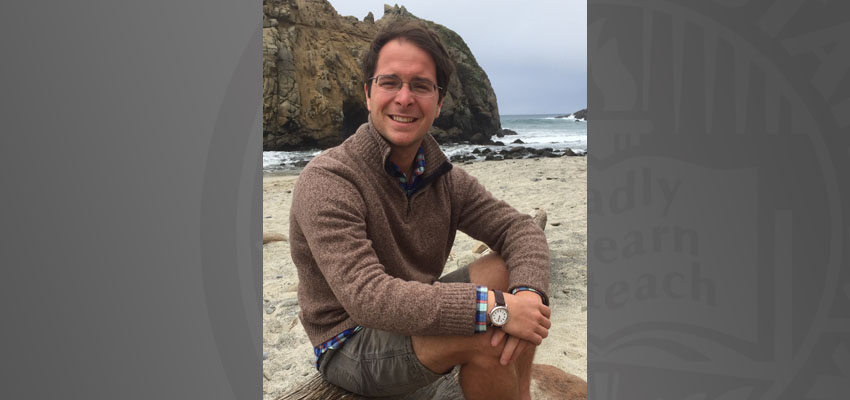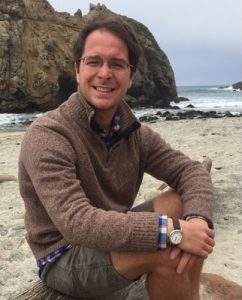The Department of Psychology and the Cognitive Behavioral Sciences (CBS) Colloquium Series will present a talk titled, “The Complexity Matching Hypothesis for Human Communication,” with Drew Abney ’08, M.S. ’10, M.S. ’12, Ph.D. The talk is scheduled for Friday, November 4, at 2 p.m. in 48 DeGarmo Hall.
Abney is a postdoctoral fellow in the Department of Psychological and Brain Sciences at Indiana University.
Abstract
Recent studies of dyadic interaction have examined phenomena of synchronization, entrainment, alignment and convergence. All these forms of behavioral matching have been hypothesized to play a supportive role in establishing coordination and common ground between interlocutors. Behavioral matching involves one-to-one temporal correspondences between partners, but interlocutor behaviors may also converge in terms of broader statistical properties, such as the means, variances, and shapes of frequency distributions.
In recent work, my collaborators and I have tested this possibility in the context of distributions that appear as power laws over certain temporal scales of measurement in conversational speech signals. We analyzed speech signals from various social settings as time series of acoustic onset events and found the events to cluster across timescales as a power law, a term called multiscale clustering.
Notably, we observed convergence of power laws across dyads and the degree of convergence depended on the context in the social setting. This type of convergence is referred to as complexity matching, and is predicted by corresponding theory from statistical mechanics aimed to understand information flow through complex networks. Applying the framework of complexity matching to vocal interaction can provide novel insights into the hierarchical, multiscale properties of language production and the complex coordination patterns across human-human and human-environment interactions.
In this presentation, I will provide a brief overview of complexity matching and how it relates to and extends upon contemporary work studying dyadic interaction. I will then present empirical work applying the framework of complexity matching to vocalization and body movement corpora spanning diverse communicative contexts and populations. This work provides insights into the hierarchical, multiscale properties of language and action, the relationships between various coordination patterns during interaction, and the dynamics and development of communication.
A printable PDF flier for this colloquium is available on the Department of Psychology website.
CBS Colloquium Series
The CBS Colloquium Series brings high caliber researchers to the Illinois State University campus to share their work with the local academic community. Individual faculty members invite speakers to campus based on their interests. The Department of Psychology also invites alumni to speak in the series in an effort to maintain strong connections with former students and provide them with a chance to pass on their knowledge to current students. The series provides both faculty and students with a variety of professional development opportunities and allows students to network with professionals in their field of study.
This speaker series is sponsored by the Department of Psychology. To support the Department of Psychology and help enhance its educational mission with advanced teaching methods, guest speakers, and more opportunities for students to learn through research experiences, please consider making a gift to the department through the Illinois State University Foundation.
If you need a special accommodation to participate in this program, call the Department of Psychology at (309) 439-8651. Please allow sufficient time to arrange the accommodation.


